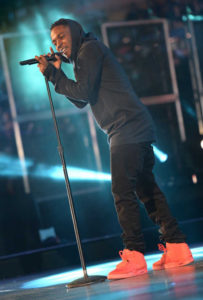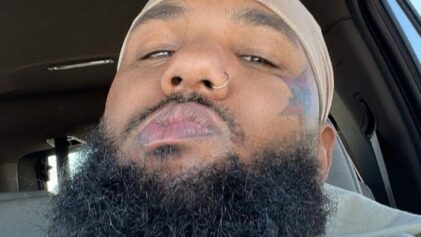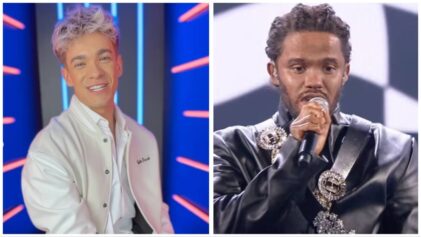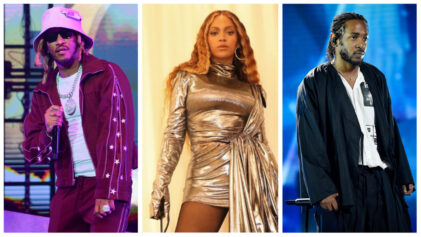While it wasn’t broadcast on national TV, Kendrick Lamar snatched up two hip-hop Grammys on Sunday, and after dropping his latest thought-provoking and politically compelling single “The Blacker the Berry,” he is reminding everyone why he has quickly skyrocketed to the top of the hip-hop totem pole.
Throughout his music career, Lamar has been a standout for everything from his unconventional flow to his daring lyrics. All the while, he has remained a humble, grounded front-runner in the hip-hop game.
Despite some major snubs at the Grammys last year, this year Lamar took home the Grammy for Best Rap Performance and Best Rap Song for his single “i.”
For his victory lap Monday, he dropped “The Blacker the Berry” and bravely took on issues of racism in America while also revisiting his controversial statement that Black people share some of the responsibility for the violence ripping through their communities.
Lamar was attacked on social media for making such a statement, but in his song he made it clear that he isn’t backing down from his viewpoint.
At the beginning of every verse, Lamar spits that he is the “biggest hypocrite of 2015” and explains that listeners won’t fully understand what he means by that until the end of the song.
On the journey to discover what exactly makes the hip-hop star a hypocrite, he blatantly addresses the way racism is still plaguing America despite claims that we have entered a post-racial society.
“You hate my people, your plan is to terminate my culture,” he raps. “You’re f*****g evil I want you to recognize that I’m a proud monkey. You vandalize my perception but can’t take style from me.”
The line not only uses white people’s own racially coded language against them, but it even tackles cultural appropriation as Lamar expresses his confidence in the fact that white people can never take his “style” from him.
Throughout the song, he also addresses genocide in Black communities, negative portrayals of Black people as a whole, how institutional racism has only created the perception of freedom while still keeping Black people at economic disadvantages and how police brutality has left Black men feeling disposable.
“I mean, it’s evident that I’m irrelevant to society,” he raps on the second verse. “That’s what you’re telling me, penitentiary would only hire me/ Curse me till I’m dead/ Church me with your fake prophesizing that I’mma be just another slave in my head/Institutionalize manipulation and lies/ Reciprocation of freedom only live in your eyes.”
An entire song packed with lyrics like this is compelling enough. That alone would have captured national attention and served as proof of Lamar’s hip-hop prowess.
But never the safe artist, Lamar then reminds listeners that he didn’t forget about his claim that he is the biggest hypocrite of 2015.
After calling out white America, slamming institutional racism and the disproportionate number of Black people being incarcerated every day, Lamar turns his attention back on the Black community for a controversial last verse.

At the end, he reveals that his statement of hypocrisy comes from the fact that he has contributed to the deaths of his own people and yet condemns white people for killing Black people.
“So why did I weep when Trayvon Martin was in the street,” he asks on the final bar. “When gang banging make me kill a n***a blacker than me? Hypocrite!”
Regardless of how people feel about Lamar’s political views, nobody could deny his lyrical genius or avoid praising him for daring to launch such an important conversation about race in his song.
While it is clear that Black communities do not hold sole responsibility for the many acts of racism that terrorize their communities, the decision to reflect on violence within these communities is still an important perspective to acknowledge.
So just as he proved in his previous hits like “Swimming Pools,” “m.A.A.d city” and “i,” and in stunning features like “Control,” you don’t have to agree with his views, but you certainly have to respect his talent and his willingness to stay true to his message.


